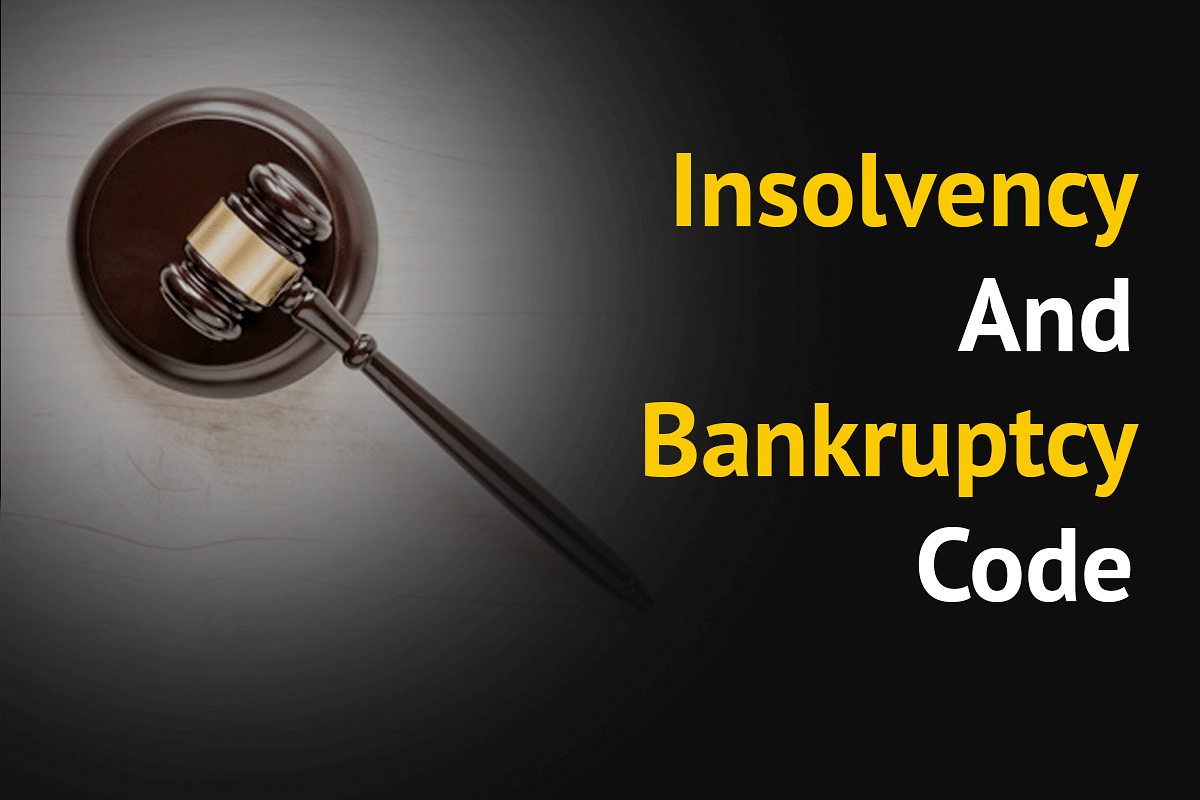Economy
Government Should Open IBC Back Door For Black Money Investment In Companies Facing Liquidation
- It’s good to make banks more solvent by allowing black money in through the IBC door.

Insolvency and Bankruptcy Code.
The Narendra Modi government, which has quietly been easing its aggressive anti-tax evasion stance, should look at opening up one more no-questions-asked investment avenue: bidding for assets stuck at the bankruptcy court.
As things stand, there are more “assets” (whatever their recovery value) than bidders. As at the end of December 2019, the Insolvency and Bankruptcy Board of India (IBBI) reported that out of the 3,312 bankruptcy cases filed with various benches of the National Company Law Tribunal (NCLT), 1,961 are still work-in-progress.
The number of pending cases is spiking every year, with December 2017 seeing 438 pending cases, rising to 848 cases the next year and now to 1,961. Pending cases have been doubling every year.
On the other hand, with the gradual resolution of big-ticket default cases like Bhushan Steel, Essar Steel, Binani Cement, Jyoti Structures, Alok Industries, Electrosteel, Monnet Ispat and some others, the value recovered by banks from future bids will start falling as we look at more unviable businesses.
The big headlines were made by cases involving companies with bad loans but good businesses. When the focus shifts to assets of companies with bad balance-sheets and bad business models, recoveries will certainly crash.
Among the big ones, the one that looks closest to delivering big recovery is Bhushan Power, which is awaiting a National Company Law Appellate Tribunal (NCLAT) decision on whether the Enforcement Directorate (ED) can recover its own claims from the winning bidder, JSW Steel. The law already indemnifies new bidders from being saddled with the cases faced by previous promoters, but JSW Steel is stuck between the new law and the ED’s recalcitrance.
The point is simple: if more assets need to be sold, the pool of potential bidders must be widened. This means not looking at the colour of the money used for the bids.
Most of the remaining cases involve smaller recovery possibilities, for their businesses may be fundamentally unviable. In these cases, one should hardly worry about whether the assets are being sold to someone with illegal money hoards or kosher sources of funds.
A tweak in the Insolvency and Bankruptcy Code (IBC) should enable the sale of assets to bidders who are willing to pay a multiple of the liquidation value of the assets, which implies that there is a tax element inbuilt into this. Very large assets (say, with liquidation values above Rs 25 crore) can be kept out of this scheme which will allow black money holders to bid without questioning their source of funds. But the scope can be enlarged based on how many take the bait.
The economy is well served if banks can recover some money from poor quality assets, even if the colour of the money is not pearly white.
This would be in keeping with the Modi government’s recent efforts to make it easier for tax litigants to settle their cases without penalties. In the current fiscal, many indirect tax disputes have been settled with the government offering to close cases without imposing penalties and interest costs, as long as litigants pay the original tax demand in full.
In the 2020-21 Union budget, a similar scheme – Vivaad se Vishwas – to settle pending direct tax cases was announced. The total demands in such litigation exceed Rs 9 lakh crore. If even a tenth of this is settled, we are talking of massive tax inflows of upto Rs 1 lakh crore in a difficult fiscal situation.
Now, the government has further liberalised the Vivaad se Vishwas scheme to include money stuck in litigation at Debt Recovery Tribunals (DRTs) and disputes involving assets discovered in search and seizure operations of the tax department.
These decisions of the Union cabinet yesterday (12 February) need to be supplemented with another kind of amnesty scheme, one focused on the sale of assets now rotting at various insolvency courts. It’s good to make banks more solvent by allowing black money in through the IBC door.
Support Swarajya's 50 Ground Reports Project & Sponsor A Story
Every general election Swarajya does a 50 ground reports project.
Aimed only at serious readers and those who appreciate the nuances of political undercurrents, the project provides a sense of India's electoral landscape. As you know, these reports are produced after considerable investment of travel, time and effort on the ground.
This time too we've kicked off the project in style and have covered over 30 constituencies already. If you're someone who appreciates such work and have enjoyed our coverage please consider sponsoring a ground report for just Rs 2999 to Rs 19,999 - it goes a long way in helping us produce more quality reportage.
You can also back this project by becoming a subscriber for as little as Rs 999 - so do click on this links and choose a plan that suits you and back us.
Click below to contribute.
Latest